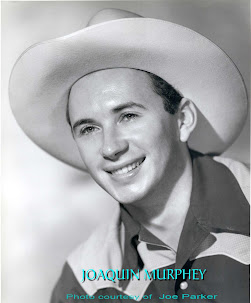Evelyn Knight (December 31, 1917 – September 28, 2007) was an American singer of the 1940s and 1950s.
Born Evelyn Davis in Reedville, Virginia, her father was "head of a geodetic survey for the government". She sang soprano in the young people's choir in a church in her hometown of Reedville, Virginia. After her father's death, Knight and her mother moved to Arlington County, Virginia, in 1926. Knight began her career in high school when she would sing at Washington D.C.'s Station WRC as “Honey Davis” twice a week over NBC for $16 a broadcast. At the age of 18, she married Andrew B. Knight, a war photographer for the Washington Post, and became professionally known as Evelyn Knight.
One of Knight's early bookings was in the King Cole Room in Washington, D.C. An initial two-week contract eventually turned into a five-year stay. By 1939, she was so well known in Washington that she made headlines when she "suffered nose injuries" as a passenger in a minor traffic accident. Near the end of that span, a Billboard reviewer wrote, "For five years she has held down the entertainment assignment in this spot and in that five years she has grown into a local tradition ... Cool and with plenty of glamour, this girl delivers her stuff in a sophisticated manner".
Knight moved to New York City, where she began headlining at Manhattan nightclubs the Blue Angel and the Plaza Hotel's Persian Room. She launched her recording career in 1945 by signing with Decca records, and moved to Los Angeles in the late 1940s where she headlined at Ciro's and Coconut Grove. Knight was the female vocalist on the Tony Martin Show, which began March 30, 1947. Also by this time a 1947 newspaper article reported, "She has given three 'command performances' for President Truman.”
In 1948, she co-starred with Gordon MacRae on Star Theater on CBS. She also was featured on Barry Wood's Million Dollar Band program and starred in a weekly program broadcast over CBS shortwave for Latin America. Knight was also a regular on Club Fifteen, Happy Island, and The Lanny Ross Show. During a seven-year span in the late 1940s and 1950, Knight had two No. 1 hit records and 13 that made the Top 40. Her debut recording was "Dance with a Dolly (With a Hole in Her Stocking)" for Decca Records in 1945. It became a Top 10 hit.
In 1948, she recorded the million-seller "A Little Bird Told Me" with The Stardusters, which was number one for seven weeks and stayed on the chart for five months. Later that year she recorded "Powder Your Face with Sunshine"; which also reached number one and remained on the chart into the following year. She had other hits including "Buttons and Bows" in 1948, which Bob Hope also sang in the film The Paleface.
By the late 1940s, Miss Knight had moved to Los Angeles, where she headlined at Ciro's and the Cocoanut Grove, two nightclubs frequented by Hollywood stars. Her musical arranger was composer Victor Young (Crosby's music director), she sang alongside Tony Martin and Gordon MacRae and had enough money in the bank to help her mother retire and to send her sister to college. In 1950, she released "Candy and Cake", originally sung by Mindy Carson, and "All Dressed Up to Smile" with the Ray Charles singers.
In 1951, she recorded a duet with country singer Red Foley called "My Heart Cries for You", as well as a pair of titles with Bing Crosby. Knight appeared on The Ed Sullivan Show, The Colgate Comedy Hour and a 1951 television appearance with Abbott & Costello. From 1950 to 1953, Miss Knight toured the country, appearing at top hotels, including the Palmer House in Chicago, the Brown Palace in Denver and the Copley Plaza in Boston. Her sister was her driver and assistant, and her pianist and conductor was Ray Sinatra (a cousin of Frank).
When she married songwriter John Lehmann in 1954, supper clubs were beginning to close, and musical tastes were turning toward the raucous sounds of rock-and-roll. She was among the original 1,500 stars on the Hollywood Walk of Fame. Her star, dedicated February 8, 1960, is at 6136 Hollywood Boulevard, in the "Recording" section. During that year recorded her last record “Speak For Yourself Bill” composed by her husband on the Canadian American label, which was only issued as a promo. It was around this time Miss Knight chose to retire while still in top form and never sang professionally again.
She and her family moved to Phoenix, Arizona in 1967 where she lived in obscurity. She worked as a property manager and babysitter, and her only singing came in church choirs. Almost no one she met knew a thing about her glamorous past. Following a decline in health in 2007, she moved to San Jose, California to live with her daughter. She died on September 28, 2007, from lung cancer at a San Jose nursing home, aged 89.
(Edited from Wikipedia and Washington Post obit)
























































